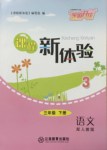题目内容
Douglas Grace talks about his ideal city of the future.
I see the city of the future in three zones——inner, middle and outer. In the inner zone there will be no private cars. Public transport will be free and there will only be ambulances, fire engines, taxis and police cars. This inner zone will be the residential(住宅的) and recreational(娱乐的) area of the city. People will live there and go out to enjoy themselves——to cinemas and restaurants. There will be parks and open spaces, trees and lakes, schools and universities. This way, when people are at home, they can go out easily and safely.
Just outside the inner zone there will be big car parks for all private cars.
The banks and most of the shops and hospitals will be in the middle zone. These are things that people don’t need every day.
All the factories and offices will be in the outer zone. People will travel out of the center to work, and back to the center in the evenings. The inner zone will be cleaner and better to live in and there will be more space for industry on the outside.
out of the center to work, and back to the center in the evenings. The inner zone will be cleaner and better to live in and there will be more space for industry on the outside.
This is my ideal city of the future—— a very beautiful place!But I don’t really think things will ever be like that!
【小题1】Where will people live and go out to enjoy themselves?
| A.In the middle zone. |
| B.In the inner zone. |
| C.In the outer zone. |
| D.In the inner and middle zone. |
| A.Just outside the middle zone. |
| B.Just inside the middle zone. |
| C.Just outside the inner zone. |
| D.Just inside the inner zone. |
| A.The banks,hospitals and schools. |
| B.The banks,hospitals and police stations. |
| C.The banks,schools and car parks. |
| D.The banks,hospital and most of the shops. |
| A.In the outer zone. |
| B.In the middle zone. |
| C.In the inner zone. |
| D.In the middle and inner zone. |
| A.a painter |
| B.a builder |
| C.a town planner |
| D.a dentist |
【小题1】B
【小题1】C
【小题1】D
【小题1】A
【小题1】C
解析

 芝麻开花课程新体验系列答案
芝麻开花课程新体验系列答案 怎样学好牛津英语系列答案
怎样学好牛津英语系列答案Douglas Grace talks about his ideal city of the future.
I see the city of the future in three zones——inner, middle and outer. In the inner zone there will be no private cars. Public transport will be free and there will only be ambulances, fire engines, taxis and police cars. This inner zone will be the residential(住宅的) and recreational(娱乐的) area of the city. People will live there and go out to enjoy themselves——to cinemas and restaurants. There will be parks and open spaces, trees and lakes, schools and universities. This way, when people are at home, they can go out easily and safely.
Just outside the inner zone there will be big car parks for all private cars.
The banks and most of the shops and hospitals will be in the middle zone. These are things that people don’t need every day.
All the factories and offices will be in the outer zone. People will travel out of the center to work, and back to the center in the evenings. The inner zone will be cleaner and better to live in and there will be more space for industry on the outside.
out of the center to work, and back to the center in the evenings. The inner zone will be cleaner and better to live in and there will be more space for industry on the outside.
This is my ideal city of the future—— a very beautiful place! But I don’t really think things will ever be like that!
【小题1】Where will people live and go out to enjoy themselves?
| A.In the middle zone. |
| B.In the inner zone. |
| C.In the outer zone. |
| D.In the inner and middle zone. |
| A.Just outside the middle zone. |
| B.Just inside the middle zone. |
| C.Just outside the inner zone. |
| D.Just inside the inner zone. |
| A.The banks,hospitals and schools. |
| B.The banks,hospitals and police stations. |
| C.The banks,schools and car parks. |
| D.The banks,hospital and most of the shops. |
| A.In the outer zone. |
| B.In the middle zone. |
| C.In the inner zone. |
| D.In the middle and inner zone. |
| A.a painter |
| B.a builder |
| C.a town planner |
| D.a dentist |
I told my friend Graham that I often cycle two miles from my house to the town centre but unfortunately there is a big hill on the route. He replied, “You mean fortunately.” He explained that I should be glad of the extra exercise that the hill provided.
My attitude to the hill has now changed. I used to grumble as I approached it but now I tell myself the following. This hill will exercise my heart and lungs. It will help me to lose weight and get fit. It will mean that I live longer. This hill is my friend. Finally I comfort myself with the thought of all those silly people who pay money to go to a gym and sit on stationery exercise bicycles when I can get the same value for free. I have a smile of satisfaction as I reach the top of the hill.
Problems are there to be faced and overcome. We cannot achieve anything with an easy life. Helen Keller was the first deaf and blind person to gain a university degree. Her activism and writing proved inspirational. She wrote, “Character cannot be developed in ease and quiet. Only through experiences of trial and suffering can vision be cleared, ambition inspired and success achieved.”
One of the key factors of success in life is our attitude towards adversity (逆境). From time to time we all face hardships, problems, accidents, afflictions and difficulties. Some are of our making but many confront us through no fault of our own. While we cannot choose the adversity we can choose our attitude towards it.
Douglas Bader was 21 when in 1931 he had both legs cut off following a flying accident. He was determined to fly again and went on to become one of the leading flying aces in the Battle of Britain with 22 aerial victories over the Germans. He was an inspiration to others during the war. He said, “Don’t listen to anyone who tells you that you can’t do this or that. That’s nonsense. Make up your mind, and you’ll never use crutches (拐杖) or a stick, and then have a go at evening. Go to school, and join in all the games you can. Go anywhere you want to. But never, never let them persuade you that things are too difficult or impossible.”
The biographies of great people are full of examples of how they took steps to overcome the difficulties they faced. The common thread is that they did not become depressed. They chose their attitude. They chose to be positive. They took on the challenge. They won.
Nevertheless, there is still the problem of how you change your attitude towards adversity.
【小题1】The underlined word “grumble” in the second paragraph is closest in meaning to ________.
| A.tremble | B.complain | C.speed up | D.slow down |
| A.Climbing hills on bicycles is the best way to take exercise. |
| B.People are wise to pay to go to the gym. |
| C.Those who want to achieve success can’t expect to live an easy life. |
| D.People’s attitude towards adversity is the only factor that determines whether they will succeed. |
| A.Failure is the mother of success. |
| B.A fall into the pit, a gain in your wit. |
| C.If you venture nothing, you will have nothing. |
| D.Nothing is difficult to the man who will try. |
| A.how his friend helped him to change his attitude towards the adversity he faced |
| B.what steps to take to change your attitude towards the adversity you face |
| C.what great people have in common |
| D.why it is important to keep optimistic in face of adversity |
| A.Face adversity with a smile |
| B.Different attitudes towards adversity |
| C.Nothing is impossible |
| D.Life is full of adversity |